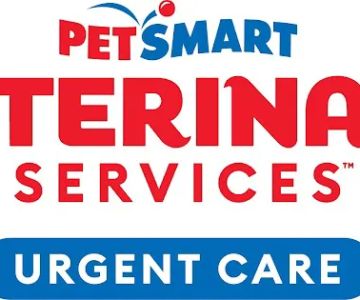Are Veterinary Prescriptions Considered Taxable or Non-Taxable?
- 1. Understanding Veterinary Prescriptions and Taxes
- 2. The Tax Status of Veterinary Prescriptions
- 3. When Veterinary Prescriptions Are Taxable
- 4. When Veterinary Prescriptions Are Non-Taxable
- 5. A Real-Life Example of Veterinary Taxation
- 6. How to Ensure You Are Paying the Right Taxes on Veterinary Products
1. Understanding Veterinary Prescriptions and Taxes
When it comes to veterinary care, many pet owners wonder whether their pet’s medication is subject to sales tax. After all, pet prescriptions are a common expense, and understanding how taxes apply to them can save you money in the long run. As someone who has navigated the complexities of veterinary care for my pets, I can tell you that the tax status of veterinary prescriptions can vary depending on where you live and what products you're purchasing. In this article, we’ll break down the key factors that determine whether veterinary prescriptions are taxable or non-taxable.
The general rule for tax status of prescriptions is that if a product is prescribed by a veterinarian, it might be exempt from sales tax in many areas. However, this is not always the case, and understanding the specifics is crucial to ensuring you're not overpaying for pet medications. So, let’s dive deeper into the tax status of veterinary prescriptions and what it means for you and your pet.
2. The Tax Status of Veterinary Prescriptions
In most states in the U.S., sales tax laws are fairly consistent when it comes to prescription medications, but there are exceptions. The rules can vary significantly depending on the jurisdiction. Generally, the primary factor that determines whether veterinary prescriptions are taxable or non-taxable is whether the medication is considered "prescribed" by a licensed veterinarian. If the prescription is for a specific medical purpose for the pet, such as treating a condition or disease, the medication may be tax-exempt.
It’s important to note that some veterinary products that are not considered “prescriptions” or are not for a direct medical purpose may still be taxable. For example, flea treatments that don’t require a prescription or over-the-counter supplements might be subject to tax. I’ve had to learn firsthand that even if a product is sold at a veterinary office, it doesn’t always mean that it qualifies as a tax-exempt prescription.
3. When Veterinary Prescriptions Are Taxable
There are situations where veterinary prescriptions can be subject to sales tax, and this typically happens when the medication or product is not deemed “prescribed” or doesn’t meet the necessary criteria. Let me share some examples where veterinary prescriptions might be taxable:
3.1 Non-Medical Products
If a product is not intended for the treatment of a disease or condition, it may not be considered a “prescription” product for tax purposes. For instance, products like certain pet shampoos or over-the-counter flea treatments might be taxable because they are not classified as prescription medications. These items are sold as general consumer products rather than being used to address a medical issue, which makes them taxable in many cases.
3.2 Preventative Medications Without a Prescription
In some states, preventive products such as flea and tick preventatives, heartworm medications, or dietary supplements that are purchased without a prescription are subject to sales tax. Even if your pet’s vet recommends a product, if it does not require a prescription, it could be taxed. I’ve found this to be true when purchasing certain over-the-counter medications for my pets.
4. When Veterinary Prescriptions Are Non-Taxable
In many cases, veterinary prescriptions are exempt from sales tax. If your veterinarian prescribes a specific medication to treat a diagnosed illness or condition, it may be considered a non-taxable item. For example, medications like antibiotics, pain relievers, or allergy medications that are prescribed to address a medical condition are generally exempt from sales tax. Here are a few conditions under which veterinary prescriptions might not be taxed:
4.1 Medications Prescribed for Treatment of Illness
If your veterinarian prescribes medication to treat a specific medical condition, such as an infection or a chronic illness, this medication is often exempt from sales tax. For instance, I’ve had to purchase medications for my dog after surgery, and the cost was not taxed because it was a prescribed medication for a specific medical need.
4.2 Prescription-Only Medications
Prescription-only medications are typically exempt from sales tax in many states, especially when they are dispensed by a licensed veterinarian or a pharmacy. If the medication is required to be prescribed by law, it’s often treated the same as human medications, which are generally tax-exempt when prescribed by a licensed professional.
5. A Real-Life Example of Veterinary Taxation
Let me tell you about an experience I had recently when I had to purchase a medication for my dog, Max. Max was diagnosed with a skin infection, and the veterinarian prescribed an antibiotic ointment. When I went to pick it up from the vet’s office, I was surprised to see that the ointment wasn’t taxed. This was a great relief, as it was a prescription medication for a specific condition, and it met the criteria for a non-taxable item. However, when I later purchased a flea collar for Max from the same veterinary office, it was taxed, since flea collars are considered non-prescription products and fall into the taxable category in my state.
This experience really highlighted how important it is to understand the tax implications of different veterinary products. Even though both items came from the same place, the taxability depended on whether the item was a prescribed medication or a general product.
6. How to Ensure You Are Paying the Right Taxes on Veterinary Products
To avoid overpaying on taxes for your pet’s medications, it’s important to know when a product is taxable and when it’s exempt. Here are some tips I’ve learned along the way:
6.1 Check the Product's Tax Status
Before purchasing a veterinary product, ask your veterinarian or the pharmacy whether the item is taxable or tax-exempt. They should be able to provide clear guidance. Additionally, many states have online resources that outline which veterinary products are taxable or non-taxable.
6.2 Keep Records of Purchases
Keep a record of all veterinary prescription purchases. This way, if you ever need to file for tax deductions or seek a refund, you’ll have a clear record of your expenses.
In conclusion, understanding whether veterinary prescriptions are considered taxable or non-taxable is crucial for managing your pet’s healthcare costs. Always be sure to ask questions and stay informed about the tax status of the medications your pet needs. The more you know, the better you can manage your expenses and avoid unexpected costs.











